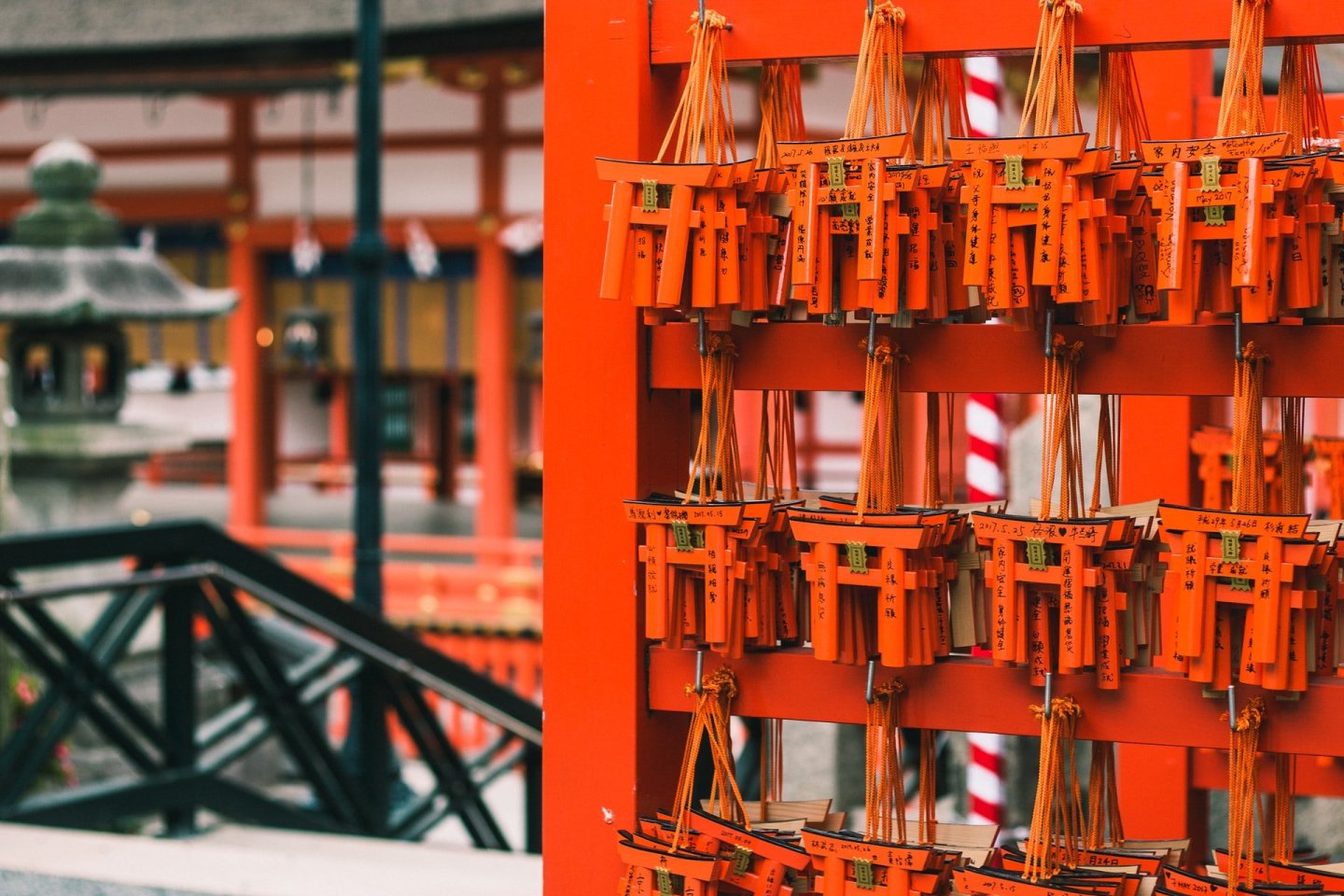Japan is a country that possesses a large number of public holidays and it can be wise to know when they are when planning your travel in Japan. The country has many holidays only found in Japan and a few international holidays that the Japanese celebrate in unique ways.
Below we have prepared a guide to Japan's public holiday schedule; when the holidays are, and what to expect from them:
Japan Holidays in 2026
Browse the table of Japan national holiday dates below — we've reformatted the list to be easier to browse at a glance, but you can still interact with each row to reveal more information about the holiday itself.
| # | Holiday | Date |
|---|---|---|
| 1 | New Year's Day元日 / Ganjitsu | (Thur) |
| The most important holiday in Japan. Many businesses close from January 1st–3rd and traditionally families will often gather to spend these days together. Visiting a shrine on New Year's Eve is customary and the ringing of temple bells can be heard throughout Japan as the clock strikes midnight. Most shrines and temples throughout the country are at their busiest during this time as people take part in 'Hatsumode'; the year's first visit to a shrine or temple. Related: Guide to New Years in Japan | ||
| 2 | Coming of Age Day成人の日 / Seijin no hi | (Mon) |
| On the second Monday of every January, Japan celebrates 'Coming of Age Day'/'Adults Day' (Seijin no Hi). The Holiday is an important rite of passage for Japanese youth entering into adulthood. All those who turned 20 years old in the previous year can partake in a festival; now recognised as an adult by Japanese society. Always held on the second Monday in January. Related: Coming of Age Day at Meiji Jingu | ||
| 3 | National Foundation Day建国記念の日 / Kenkoku Kinen no Hi | (Wed) |
| This public holiday is held to commemorate the formation of the nation and the establishment of the imperial line by the first Japanese ruler, Jimmu. The holiday is rather subdued by Japanese standards, with only a few places holding festivals to celebrate the day. Notable, more Japanese flags, including the national flag, can be found raised and placed outside of homes and establishments. | ||
| 4 | Emperor’s Birthday天皇誕生日 / Tenno tanjoubi | (Mon) |
| This Japanese holiday celebrates the birth of the current emperor of Japan. Emperor’s Birthday is one of only two days during the year that the Imperial Palace is open to the public. The emperor and empress, as well as other members of the royal family, appear at the balcony of the palace and welcome all visitors that enter and leave the grounds. | ||
| 5 | Vernal Equinox Day春分の日 / Shunbun no Hi | (Fri) |
| The Vernal Equinox (Shunbun no Hi) is a holiday that marks the end of winter and the arrival of spring. The day is intended to celebrate the love of nature and living things. The holiday maintains its older traditions such as visiting family graves and holding family reunions as a common way to celebrate the day. | ||
| 6 | Shōwa Day昭和の日 / Shōwa no Hi | (Wed) |
| A public holiday where most businesses will be closed, Shōwa Day is a Japanese annual holiday during 'Golden Week' that honours the birthday of Emperor Shōwa, the reigning emperor from 1926 to 1989. | ||
| 7 | Constitution Memorial Day憲法記念日 / Kenpō Kinenbi | (*Observed (Wed) |
| Constitution Memorial Day is a national holiday in Japan. It takes place on May 3 and celebrates the enactment of the 1947 Constitution of Japan. Constitution Memorial Day is one of the holidays that makes Japan's Golden Week national vacation. | ||
| 8 | Greenery Dayみどりの日 / Midori no Hi | (Mon) |
| Greenery Day (Midori no Hi) or also referred to as 'In between day'* as it falls between Constitution Memorial Day and Children's Day holidays, celebrates nature and its blessings while also indirectly acknowledging former Emperor Hirohito's love of plants and nature. *The Japanese law states that a day that falls between two holidays will also be a holiday. | ||
| 9 | Children's Dayこどもの日 / Kodomo no Hi | (Tues) |
| Children's Day takes place on May 5th and is the final Holiday in the collection of days that make up Golden Week vacation. As the name implies it is a day that celebrates the health and happiness of children. During this day you will often find colourful carp streamers waving outside in the wind and foods such as Kashiwa-mochi (sticky rice cakes filled with red bean jam and wrapped in oak leaves) and chimaki (sticky sweet rice wrapped in an iris or bamboo leaf) are traditionally served on this day. | ||
| 10 | Sea Day海の日 / Umi no Hi | (Mon) |
| Also known as Marine Day (Umi no Hi), is a day the island nation of Japan shows appreciation for the sea and ocean that surrounds the land. Established as a national holiday in 1996, the modern holiday has no particular traditional ceremonies associated with it. However, national aquariums organize special events and cultural activities relating to the sea. Many locals will take advantage of the summer weather and spend the day at the beach. Sea Day is held on the third Monday in July. | ||
| 11 | Mountain Day山の日 / Yama no Hi | (Tues) |
| Mountain Day is a public holiday held annually on August 11th and began in 2016. The holiday is designed for individuals to appreciate Japan's mountainous landscape and the blessings that come from it. | ||
| 12 | Respect for the Aged Day敬老の日 / Keiro no Hi | (Mon) |
| Respect for the Aged Day (Keiro-no-Hi) is a Japan's national holiday that honours elderly citizens and is held on the third Monday in September. On Respect for the Aged Day, organizations and companies will have special events to help the elderly living in their community or individuals with volunteer; taking part in activities to help those in their communities. | ||
| 12 | Extra Holiday for Silver Week国民の休日 / National Holiday | (Tues) |
| Additional national holiday granted for Silver Week 2026, given the preceding and following days are both National Holidays. | ||
| 13 | Autumn Equinox秋分の日 / Shubun no Hi | (Wed) |
| Autumnal Equinox Day is celebrated on a national holiday usually held on either 22nd, 23rd or 24th of September. The Japanese use Autumnal Equinox Day to pay respects to deceased family members, visit family graves and hold family reunions in honour of those who have passed. | ||
| 14 | Sports Dayスポーツの日 / Supōtsu no hi | (Mon) |
| Sports Day is a national holiday in Japan held every year on the second Monday of October. It celebrates the opening of the 1964 Summer Olympics held in Tokyo and is held to help promote sports, health and an active lifestyle. | ||
| 15 | Culture Day文化の日 / Bunka no Hi | (Tues) |
| Culture Day (Bunka-no-hi) is held on November 3rd and intended to promote culture, art and academic endeavours. This day typically contains the holding of art exhibitions, parades and award ceremonies for distinguished artists and scholars. Related: Culture Day Parade in Hikone | ||
| 16 | Labor Thanksgiving Day勤労感謝の日 / Kinrō Kansha no Hi | (Mon) |
| Japan's Thanksgiving Day is a national holiday celebrated on November 23rd. Intended to celebrate labour, production and give thanks to one another. Events are held throughout Japan, such as the Nagano city's Labor Festival where they promote being environmentally conscious, peace and human rights. | ||
What Reiwa year is it in Japan?
2026 will be Reiwa 8 (R8) — useful to know as sometimes holidays and events use this notation (R8 or 令和8) instead of the Western format.
Other Holidays in Japan
There are a lot of quirky pseudo-holiday dates in Japan — many may have heard of Pocky Day in November (11/11). Explore more of these alternative holidays for more cultural insights.
is recognised as Christmas Day but not celebrated as a National Holiday in Japan. You can still read about Christmas in Japan or some of the Christmas events that take place each year.


























I am bookmarking this ;)